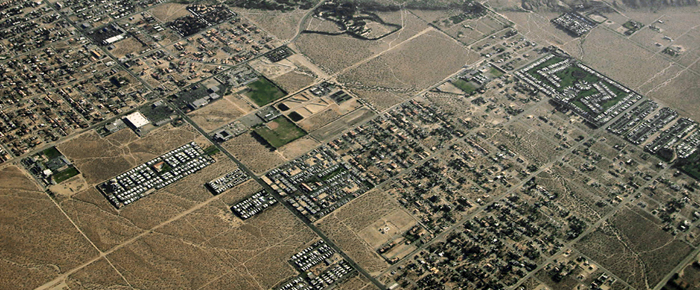
By John Paul Valdez
Bloomberg described Desert Hot Springs as “A resort city near Palm Springs.” With some patience and outside guidance, that is exactly how the remainder of the Coachella Valley will see DHS in the long term, once the city lives through a possible bankruptcy. The article in that publication also states that DHS would be the city after Detroit to seek protection from creditors under this statute, and that is a less dubious honor.
Rather than write about whose fault everything is, or spend time writing about the could haves, would haves, and should haves, I will try to write briefly about what happens to those who live in that city, visit that city and live next to that city as a result of financial moves under this statute.
Your average trip to the grocery store won’t change much. Many of the other factors of your daily life won’t either. Some changes will occur without your noticing.
The ownership of certain previously city owned assets are in discussion like Cabot’s Museum, which is one of the only buildings on the National Historical Register in the entire valley, but it will operate like a museum for residents and guests alike regardless.
The visitor’s center downtown has also been mentioned, but again, will go unnoticed by those who use the building as clients in all likelihood.
Things like the police department and fire department, as well as city contracts and employees will be greatly affected, but even if a county sheriff pulls you over for a ticket or a local police officer from a wholly owned police department does so, your involvement will change little.
Once a payment plan is put into place, and labor contracts renegotiated and costs brought down into a range that can be met with the revenues the city is able to collect, the city will emerge in a healthier state and in a more competitive state than before if the bankruptcy is handled properly. This can bring an increase in economic development later, even if that immediate effect is not as encouraging.
A bankruptcy normally hinders the ability of a municipality (city) to borrow via the issuance of bonds, and that means that infrastructure projects will likely be on hold for some time.
DHS had just built a public pool, a small medical center, and some other improvements that luckily were badly needed and can perhaps serve as sufficient through this period.
Just know that bankruptcies are never overnight occurrences, and that they are the result of many years of spending over the revenue amounts to meet those expenditures.
The city had been fortunate enough to plug former lack of funds with one time lump sum income that has now obviously disappeared, and now the consequences of avoiding a regular cycle of sources and uses of funds has created the situation we have today. Some say that can be said for a period even exceeding the six years of the current administration, so blame is there to spread as far back as anyone cares to go.
In the end, DHS will emerge debt free and with a new wind at its back, pun intended. Good for DHS. Good for the valley. It’s your nickel!













































